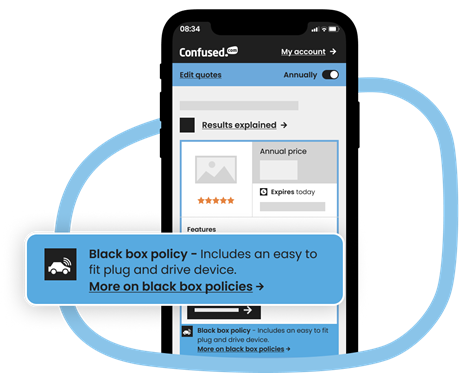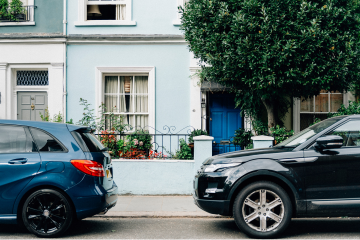Use a 0% interest credit card to spread the cost of your insurance. If you have a good credit history and are confident in managing your finances, this could be a good way to afford one payment and then repay your credit card balance during your agreed 0% interest period. Not all credit cards will give you 0% for the whole 12 months so check your agreement terms. It might be helpful to set up a regular direct debit to repay your balance to make sure you don’t miss a repayment. Otherwise, you risk losing your 0% interest and it can have a bad effect on your credit rating.
Increase your voluntary excess, which is the amount you pay voluntarily toward any claim you make. This could lower your car insurance costs, but make sure you can afford to pay this initial cost if you make a claim.
Enhance your car's security with features like an alarm, immobiliser or tracker. This makes it harder to steal and shows your insurer you're less likely to make a claim for theft.
Choose a black box or telematics policy, which bases the cost of your insurance on how well you drive. These policies monitor your driving for things such as braking, speeding and how much you drive. This data generates a driving score, which can reduce costs for safer drivers. These policies are particularly useful for new drivers.
Choose fully comprehensive insurance: Even though they give you a higher level of cover, fully comprehensive policies tend to be cheaper than third party policies.In fact, our data shows the average price for a fully comprehensive policy(3) is £777, compared to £2,113 for third party only insurance(2).
Build your no-claims bonus (NCB) and you could get discounted prices as a reward for several years of safe driving. For each year you go without making a claim, you get another year added to your NCB. Having just 1 year of NCB could save you 34% compared to having none2. The higher your NCB, the bigger the discount you could get.
You could look out for policies with protected NCBs so that you don't lose your bonus if you do have to make a no-fault claim. There's usually an extra cost for this, so you'll need to weigh up whether it's worth it to you.
Consider temporary car insurance if you don't use your car regularly throughout the year. This allows you to set up cover as and when you need it rather than having continuous cover all year. Compare prices against annual policies to see if this is an affordable option based on how much you'll be driving. If your car usage increases later, you can always get an annual policy then. Note that you will have to declare your car 'SORN' for any time it's uninsured.
2Confused.com data Q4 2024.
3Confused.com price index data Q1 2025.








